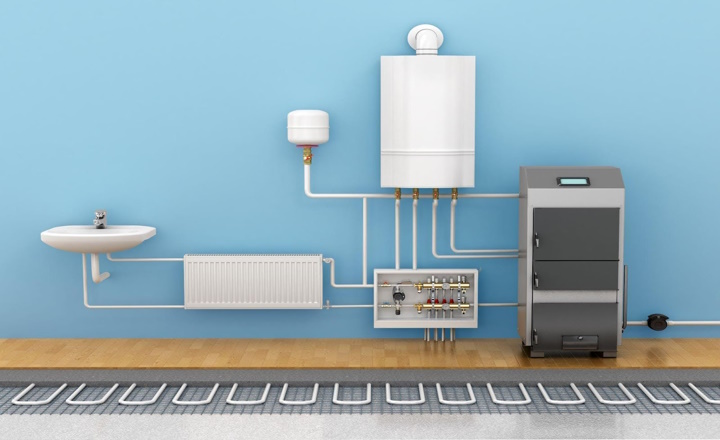
In today's world, energy efficiency has become pivotal for modern households. With growing awareness of environmental impacts and rising utility costs, it's no wonder that more individuals are seeking ways to improve energy consumption at home. One significant area where households can make a difference is by upgrading their hot water systems. These systems are some of the largest consumers of energy within a home, which makes enhancing their efficiency particularly valuable. Upgrading provides numerous benefits, such as improved performance and reduced costs and contributes to a smaller carbon footprint. By the end of this article, it will be clear why investing in a new hot water system is wise for those aiming to enhance energy efficiency.
Understanding Your Current Hot Water System
Modern households typically utilise one of several types of hot water systems: tank, tankless, solar, or heat pump systems. Each comes with its own set of pros and cons regarding energy usage and efficiency. Traditional tank water heaters usually hold substantial amounts of water and use energy consistently to keep it heated, thus leading to increased energy consumption. On the other hand, tankless systems heat water on demand, which can be a more efficient option for those mindful of energy bills.
Solar hot water systems leverage renewable solar energy, offering significant reductions in energy use compared to conventional methods. Meanwhile, heat pump water heaters transfer heat rather than generate it directly, resulting in less electricity usage. If your existing system is outdated and shows signs like inconsistent water temperatures, strange noises, or higher-than-expected energy bills, it may be time to consider an upgrade. Moreover, old and inefficient systems tend to have a higher environmental impact, contributing more to greenhouse gas emissions than modern, efficient alternatives.
Benefits of Upgrading Your Hot Water System
The decision to upgrade a hot water system has many benefits, beginning with improved energy efficiency and reduced utility bills. Modern systems are designed to use energy more efficiently, providing substantial cost savings over time. In addition to lower expenses, newer systems offer enhanced performance and reliability, ensuring a steady and adequate hot water supply when needed.
Investing in an upgraded system can also increase the property value, making it a smart choice for those considering selling their home in the future. If that’s not persuasive enough, reducing a household's carbon footprint aligns with responsible environmental stewardship, a priority for many. An energy-efficient hot water system upgrade is a practical step toward this goal.
Factors to Consider When Choosing a New Hot Water System
Choosing the right hot water system involves several key considerations. First and foremost, the system capacity should be assessed to ensure that it aligns with the household's demand, whether a large family or a smaller household; sizing the system correctly is crucial for efficiency.
Energy efficiency ratings provide insight into how much energy a new system will require, and this should certainly be taken into consideration alongside environmental factors. Upfront costs can be daunting, but one must weigh these against expected long-term savings on energy bills. Plus, there are often government incentives and rebates available for selecting eco-friendly upgrades, making the initial investment more palatable.
Popular Energy-Efficient Hot Water Systems on the Market
When exploring options, it becomes evident that various energy-efficient hot water systems exist in the present market. Tankless water heaters, for instance, eliminate the heat loss associated with storing hot water and can provide a continuous supply, which is ideal for larger families.
Heat pump water heaters represent another great choice, as they are about three times more energy-efficient than conventional electric resistance water heaters. They extract heat from the environment, using less electricity to heat the water directly. Solar water heating systems offer the ultimate in renewable energy use, though they typically involve a higher initial investment.
While traditional systems have been overshadowed by these innovative technologies, the decision ultimately hinges on individual needs and budget. A comparison of costs and efficiency will help in making an informed choice that aligns best with individual energy-saving goals.
How to Successfully Implement Your Hot Water System Upgrade
Successfully upgrading a hot water system begins with a clear plan in place. Firstly, research and select the most suitable system for the home’s requirements. Hiring qualified professionals for installation is imperative; expert installers ensure the system functions optimally and safely.
Moreover, consider the disposal of the old hot water system as there might be specific guidelines to follow to minimise environmental impact. Once your new system is set up, regular maintenance is key to ensuring it remains efficient. Simple tasks like checking for leaks or ensuring the thermostat is set correctly can greatly maximise the system’s efficiency.
Conclusion
Upgrading a hot water system is a decision that brings numerous advantages—most notably energy efficiency improvements and reduced bills. For those dealing with signs of an inefficient hot water system, the benefits of upgrading extend beyond cost savings to encompass enhanced performance and increased property value.
As households increasingly prioritise sustainable living, assessing current hot water systems and understanding the long-term gains of an upgrade becomes even more pertinent. Energy-efficient upgrades have a positive impact not only on financial savings but also on protecting the environment. It's high time to explore the options and take concrete steps toward a more efficient and sustainable home.
By embracing modern hot water technology, homeowners can enjoy economic and environmental benefits, ensuring optimal performance for years to come. So, consider upgrading today and making a meaningful contribution to energy conservation and financial savings.
| < Prev | Next > |
|---|





